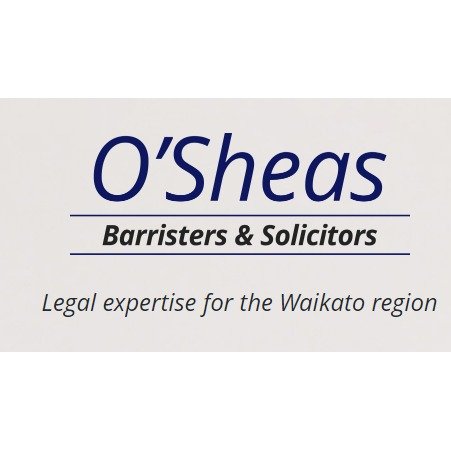Best Discrimination Lawyers in Hamilton
Share your needs with us, get contacted by law firms.
Free. Takes 2 min.
List of the best lawyers in Hamilton, New Zealand
About Discrimination Law in Hamilton, New Zealand
In Hamilton, New Zealand, the city abides by the country's Human Rights Act 1993 and the New Zealand Bill of Rights Act 1990, which make it illegal to discriminate based on various grounds including age, gender, race, sexual orientation, religion, and disability among others. Both direct and indirect discrimination are unlawful, covering areas such as employment, education, public services and public access.
Why You May Need a Lawyer
Legal assistance becomes crucial when you believe you have been a victim of discrimination whether in employment, housing or while accessing services. A lawyer can help in comprehending the complexities of the law, navigating through the legal procedures, representing your case in the court, and negotiating settlements. It's also advisable to consult a lawyer if you're an employer or a service provider for guidance in formulating non-discriminatory policies and mitigating legal risk.
Local Laws Overview
Under New Zealand's Human Rights Act, it is unlawful for an employer or a service provider in Hamilton to discriminate against you. The Act also restricts publishing or broadcasting content that encourages discrimination. Violation of these provisions may lead to penalties including monetary compensation. Additionally, the New Zealand Bill of Rights Act protects a person's freedom from discrimination by the government or any entity performing a public function. It's important to know that exceptions exist and it's best to seek legal counsel to understand the nuances.
Frequently Asked Questions
What constitutes unlawful discrimination?
Unlawful discrimination pertains to unfavorable treatment based on prohibited grounds such as gender, sexual orientation, race, religion, disability and more, in areas including employment, housing, education, or in availing public services.
What if I have been discriminated against by a government agency?
If you have experienced discrimination by a government agency, it may breach the New Zealand Bill of Rights Act. You can pursue a case in a court of law, with attorney's help, to seek remedies.
Can I file a discrimination claim on my own?
Yes, you can file a claim on your own but it's recommended to avail legal representation given the complex nature of anti-discrimination laws.
Can a discrimination case be settled out of court?
Yes, settlement out of court is quite common in discrimination cases. This usually involves negotiation between parties for compensation, apology, or changes in policy, facilitated by a lawyer.
Does indirect discrimination also count as unlawful?
Yes, both direct and indirect discrimination are considered unlawful under New Zealand's human rights law.
Additional Resources
The New Zealand Human Rights Commission and Community Law Centres provide valuable resources and support in regard to discrimination issues. You may also refer to books, articles and websites specialising in New Zealand discrimination law to educate yourself about your rights and obligations.
Next Steps
If you believe you have faced discrimination and require legal help, it's recommended to consult a lawyer specializing in discrimination law at the earliest. Document incidents and gather as much evidence as possible, including correspondence and witnesses, to support your case. Early consultation with a lawyer can help guide your steps and increase the likelihood of a favorable resolution.
Lawzana helps you find the best lawyers and law firms in Hamilton through a curated and pre-screened list of qualified legal professionals. Our platform offers rankings and detailed profiles of attorneys and law firms, allowing you to compare based on practice areas, including Discrimination, experience, and client feedback.
Each profile includes a description of the firm's areas of practice, client reviews, team members and partners, year of establishment, spoken languages, office locations, contact information, social media presence, and any published articles or resources. Most firms on our platform speak English and are experienced in both local and international legal matters.
Get a quote from top-rated law firms in Hamilton, New Zealand — quickly, securely, and without unnecessary hassle.
Disclaimer:
The information provided on this page is for general informational purposes only and does not constitute legal advice. While we strive to ensure the accuracy and relevance of the content, legal information may change over time, and interpretations of the law can vary. You should always consult with a qualified legal professional for advice specific to your situation.
We disclaim all liability for actions taken or not taken based on the content of this page. If you believe any information is incorrect or outdated, please contact us, and we will review and update it where appropriate.








